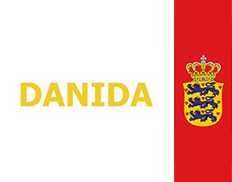Print

Climate-smart Flood and Salinity Tolerant African Rice
Details
Locations:Denmark, Kenya, Tanzania
Start Date:Apr 1, 2020
End Date:Mar 31, 2025
Contract value: DKK 11,834,862
Sectors: Agriculture, Environment & NRM
Categories:Grants
Date posted:Dec 14, 2022
Description
Project code: 19-03-KU
Project type: Research collaboration projects in Danida priority countries (Window 1)
Summary:
Tanzania produces over 80% of rice produced in East Africa, and any reduction in productivity will influence regional food security. However globally, Tanzania is among the 13 countries to be most affected by climate change with severe risks of increase in both frequency and severity of fresh or saline floods, one of the most severe climate related risks for rice. Over 70% of rice in Tanzania is rainfed, where fresh or saline floods are common, already resulting in dramatic losses to farmers; in 2015, several regions were seriously affected by floods recognizing it as the most devastating natural hazard. Salinity and sodicity are also major threats in irrigated schemes and rainfed lowlands in Tanzania. We propose to identify novel genes and large-effect quantitative trait loci (QTLs) responsible for tolerance to salinity andflooding stresses, including flooding during crop establishment where anaerobic germination (AG) is required. Ultimately, we aim at deploying promising genes and QTLs into short-maturing African varieties to produce climate-smart cultivars tolerant of both fresh and saline floods and saline soils, that are suitable for direct seeding to reduce production cost and sustain East-African rice productivity in a climate change scenario. The project engages with public and private partners in the rice value chain to disseminate project findings and stimulate ownership of the ultimate end products - new climate-smart rice cultivars in an African context.
Outputs
First Annual Report
The project aims at developing two high-yielding rice cultivars that show tolerance to flooding or salinity adapted to African environmental conditions and preferences of local consumers. Moreover, there is a capacity building component (human and infrastructure) as well as dissemination of project findings. Breeding activities are anchored at the Sokoine University of Agriculture (SUA, Tanzania) via collaboration with the International Rice Research Institute (IRRI) and the University of Copenhagen (UCPH). Despite world wide Covid-related restrictions, the project has progressed well. Infrastructure for salinity and flood tolerance screening has been planned on the SUA campus in Morogoro, with expert technical assistance from IRRI and UCPH. IRRI has increased seeds of tolerant and intolerant rice lines, and is preparing to ship these to SUA and UCPH for on site field phenotyping. IRRI has also prepared online training material in bioinformatics to overcome travel restrictions. While onboarding of MSc and PhD-students is still in process, enrolment of two CSC (China Scholarship Council) PhD students affiliated with the project has been completed at UCPH, in addition to recruitment of a MSc and two BSc students. Dissemination is ongoing using social media and press releases: an example of the latter has also been brought in local languages. Further progress will be announced at www1.bio.ku.dk/english/research/fbs/projects/climate-smart-african-rice/.

